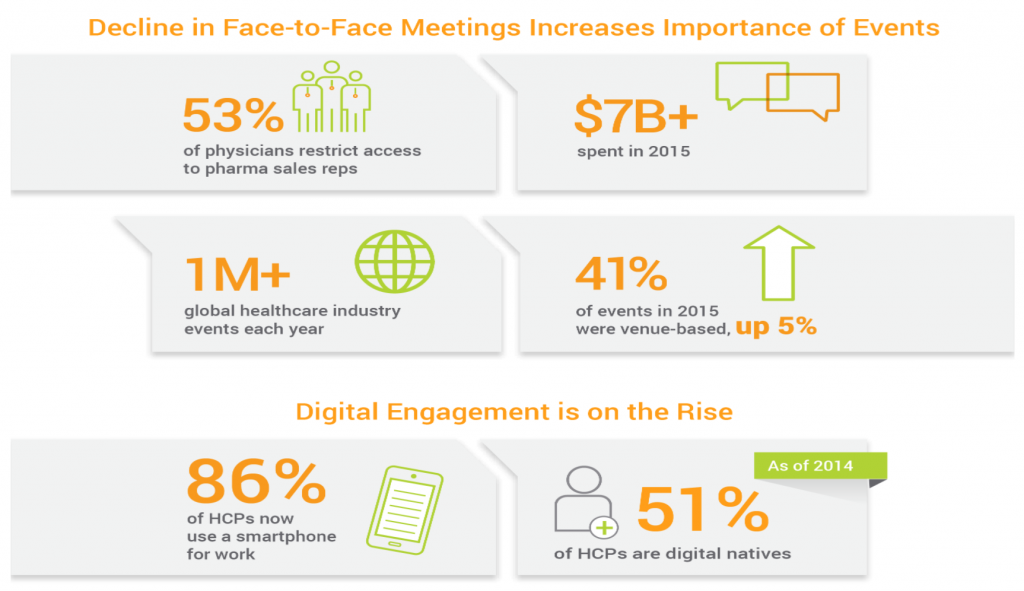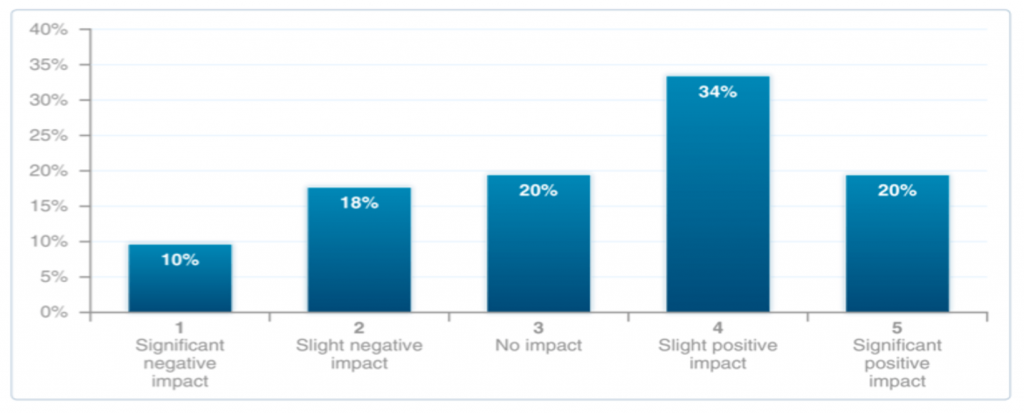What is the Future of Event Management in Life Sciences?
Events are one of the most important ways for life sciences to engage healthcare stakeholders in meaningful dialogue around improving and extending life. The average life sciences company conducts more than 20 types of events, including speaker programs, medical advisory boards, investigator meetings, trainings, and more. In just the first five months of 2015, the industry spent $547 million on travel, food, lodging and speaking and consulting fees for healthcare professionals in the U.S. market alone. Worldwide, event spending was estimated at $3.5 billion for the year.1
As traditional office access declines, events will only become more crucial to educate healthcare professionals. But with the rise of digital disruption in life sciences, and increasing expectations for easy, online availability of information, what does the future of scientific events look like?
Life sciences event management is changing, driven by a growing population of digitally native HCPs.
Ninety-six percent of HCPs say they would benefit from attending more conferences, meetings, and CME events virtually.2 At the same time, the number of digitally-native healthcare providers (HCPs) is expected to rise to two-thirds by 2020, according to a recent report by FirstWord Pharma. The report goes on to note that the majority of physicians expect virtual interactive conferences to have a positive impact on their knowledge and education — a figure that rises to more than 65% for oncology.
The majority of HCPs expect events to have a positive impact on their knowledge and education by 2021.
However, the rise of virtual conferences is not expected to marginalize physical event attendance. A majority (57%) of physicians reported that they anticipated more than half of their event attendance to take place in-person in 2021.
Beyond just access, digital disruption is driving demand for a more coordinated customer experience that extends across all channels. Together, these trends are spurring a move toward a hybrid model of virtual and physical events that needs to be fully integrated into an overall coordinated engagement strategy.
Spurred by new technology, physician preferences, and transparency regulations, life sciences is increasingly turning to virtual events as a key emerging channel and core piece of an integrated event strategy. To learn more about the where scientific events are headed — and gain insight into physicians’ expectations — take a look at the full report.
1.Rowland Stiteler, “The True Impact of Meetings” The Meeting Professional (June, 2015)
2.Healthcare IT News, “On24, MedData Group Study Reveals Physician Behavior.” Healthcare IT News, 2012. http://www.healthcareitnews.com/press-release/on24-meddata-group-study-reveals-physician-digital-behavior


